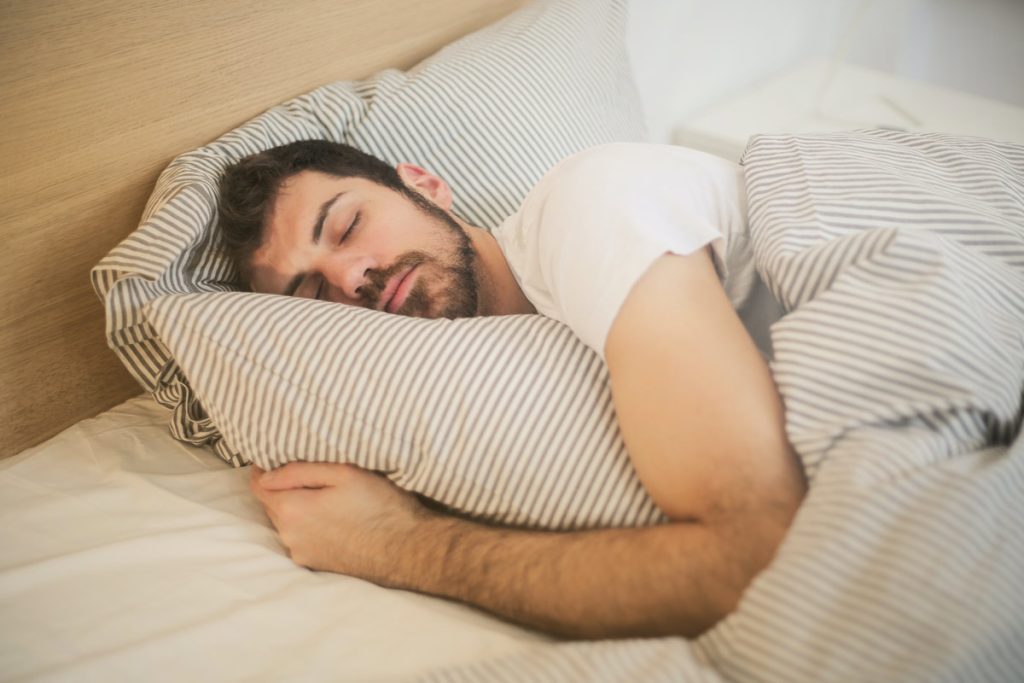We all know how important sleep is for our health and well-being, but have you ever wondered why we need it and how our bodies regulate it? The answer lies in our circadian rhythm – our body’s natural 24-hour cycle that regulates our sleep-wake cycle, hormones, and metabolism.
Our circadian rhythm is controlled by an internal clock in the brain, which is influenced by external factors such as light and darkness, temperature, and daily habits. When our body clock is in sync with our natural sleep-wake cycle, we experience better restfulness, alertness, and overall health.
Here are some tips to help you align your routine with your body’s natural rhythms and improve your restfulness:
- Stick to a regular sleep schedule: Try to go to bed and wake up at the same time every day, even on weekends. This will help regulate your body clock and improve the quality of your sleep. Creating a consistent sleep schedule may take a while to adjust to, but over time it will become easier to fall asleep and wake up refreshed and energized. It can also help improve overall sleep quality and reduce the risk of developing sleep disorders.
- Limit exposure to blue light: Blue light from electronic devices can disrupt our body’s production of melatonin, a hormone that regulates sleep. Try to avoid screens for at least an hour before bed or use blue light-blocking glasses. Blue light-blocking glasses can help reduce the amount of blue light entering your eyes and make it easier for your body to produce melatonin. Additionally, many electronic devices now have built-in settings that allow you to reduce the amount of blue light emitted, making it easier to use them before bed.
- Get sunlight in the morning: Exposure to natural light in the morning can help reset your body clock and promote alertness during the day. By regulating your circadian rhythm, exposure to natural light in the morning can also help you feel more tired and ready for sleep at night. This is because our bodies naturally start to produce melatonin in the evening when it gets dark, signaling to our brains that it’s time for sleep. Getting enough natural light during the day can help ensure this process runs smoothly, promoting deeper, more restful sleep at night.
- Create a relaxing, wind-down bedtime routine: Develop a routine that helps you unwind and relax before bed, such as taking a warm bath, reading a book, or practicing meditation. Your brain will start associating these activities with sleep, making it easier to fall and stay asleep when the time comes. Additionally, these activities can help reduce stress and anxiety, which are common culprits for keeping people awake at night.
- Make your bedroom a sleep sanctuary: Keep your bedroom cool, quiet, and dark to create a conducive sleep environment. This helps signal to your body that it’s time for sleep and promote deeper, more restful sleep throughout the night.
- Exercise regularly: Regular physical activity can improve the quality of your sleep and help regulate your body clock. Physical activity can also help reduce symptoms of anxiety and depression, which are common causes of sleep disturbances. Regular exercise can boost your overall health and well-being, leading to more restful, refreshing sleep at night.
- Limit or avoid caffeine and alcohol: Both caffeine and alcohol can disrupt sleep quality and interfere with your body’s natural rhythms. Caffeine can keep you awake and alert, while alcohol can make you feel drowsy initially but disrupt your sleep later on. Avoiding these substances or stopping consumption well before bedtime will help you get more restful, restorative sleep at night.
- Avoid large meals before bed: Eating a large meal before bed can make it harder to fall asleep and cause discomfort during the night. Instead, opt for a light snack if you’re feeling hungry before bed, such as a small bowl of cereal or a piece of fruit. This can help prevent indigestion and promote more comfortable, restful sleep.
- Use relaxation techniques: Deep breathing, progressive muscle relaxation, and guided imagery are all techniques that can help promote relaxation and improve restfulness. These techniques can help calm the mind and reduce stress and anxiety, which are common causes of sleep disturbances. By incorporating relaxation techniques into your bedtime routine, you can create a more peaceful and calming environment that promotes better sleep.
- Manage stress: Stress can interfere with sleep and disrupt our body’s natural rhythms. Stress can interfere with sleep and disrupt our body’s natural rhythms. Find ways to manage stress, such as yoga, mindfulness meditation, or talking to a therapist.
Understanding your body’s circadian rhythm is crucial to improving restfulness and overall health. By following these tips and aligning your routine with your body’s natural rhythms, you can experience better sleep, increased energy, and improved well-being. When you prioritize your individual sleep routine and develop healthy sleep habits, you enhance your overall health and well-being.
About the Author: AJ Kiefer, PMHNP, Nurse Practitioner at Neuro Wellness Spa. AJ is a board-certified Psychiatric Mental Health Nurse Practitioner who has cared for patients with mental health issues in the inpatient and outpatient setting for over sixteen years. In his current role, he treats patients using cutting-edge treatments, including Spravato and TMS Therapy in Los Angeles.
Photo by Andrea Piacquadio: https://www.pexels.com/photo/photo-of-sleeping-man-3771069/
May Is Mental Health Month 2023
"Look Around, Look Within"
May is Mental Health Month, a time to spread public awareness and education about mental health disorders and reflect on the impact of mental illness on individuals and their families.
The theme of this year's Mental Health Month is to take some time to "Look Around, Look Within." The goal this May is to challenge yourself to examine your world and how it can affect your overall mental health – from your neighborhood to genetics, many factors come into play when it comes to mental health.
It is also a time to recognize and commit to changing the racial and economic inequities in our healthcare system, particularly with respect to mental health.
www.rtor.org and Laurel House are committed to the advancement of racial equity and social justice and to making mental health services accessible to all.
The opinions and views expressed in any guest blog post do not necessarily reflect those of www.rtor.org or its sponsor, Laurel House, Inc. The author and www.rtor.org have no affiliations with any products or services mentioned in the article or linked to therein. Guest Authors may have affiliations to products mentioned or linked to in their author bios.
Recommended for You
- The Truth about Relapse in Addiction Recovery - April 14, 2025
- The Power of Peer Support in Mental Health Recovery - April 10, 2025
- Artificial Intelligence in Anxiety Management: How AI Helps Users Cope with Anxiety Symptoms - April 3, 2025






I don’t often have all the symptoms, but I do have panic attacks . It also seems that dialectic blame the sufferers. this makes me wonder. There are things that happened to me that are not my fault. I don’t want to be picked at for these things .
Hi Carole,
Thank you for taking the time to read our blog post. I completely agree, you should not be picked at for things that were out of your control. It would be beneficial for you to consider therapy to help you work on ways to cope and heal from the past, this can hopefully help reduce your panic attacks/panic attack symptoms. I will email you directly with some resources that would be helpful to you.
-Danielle